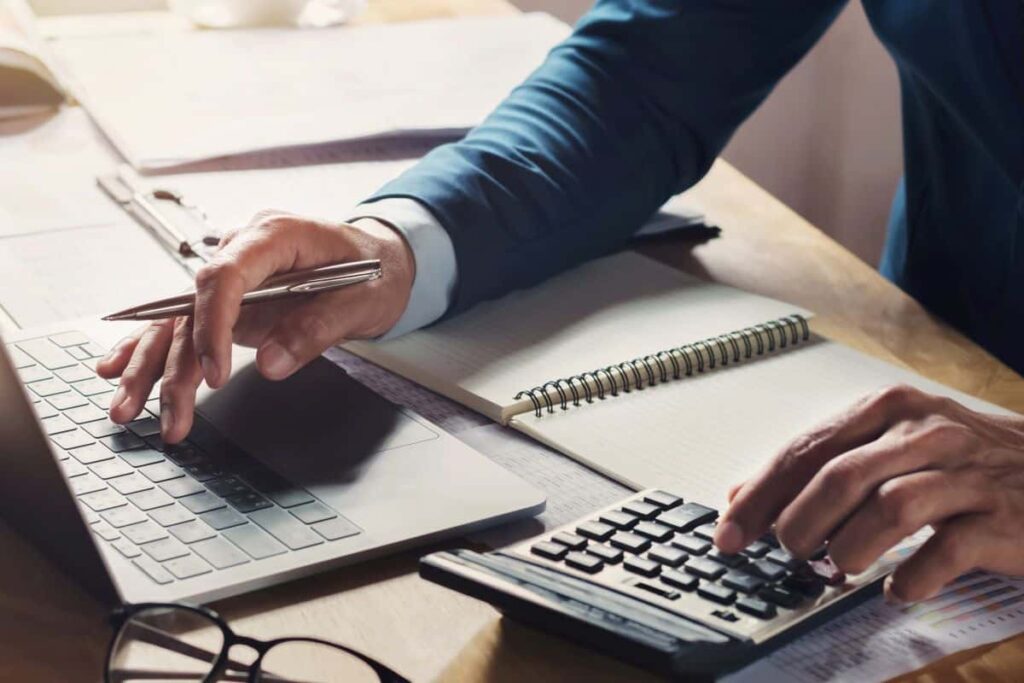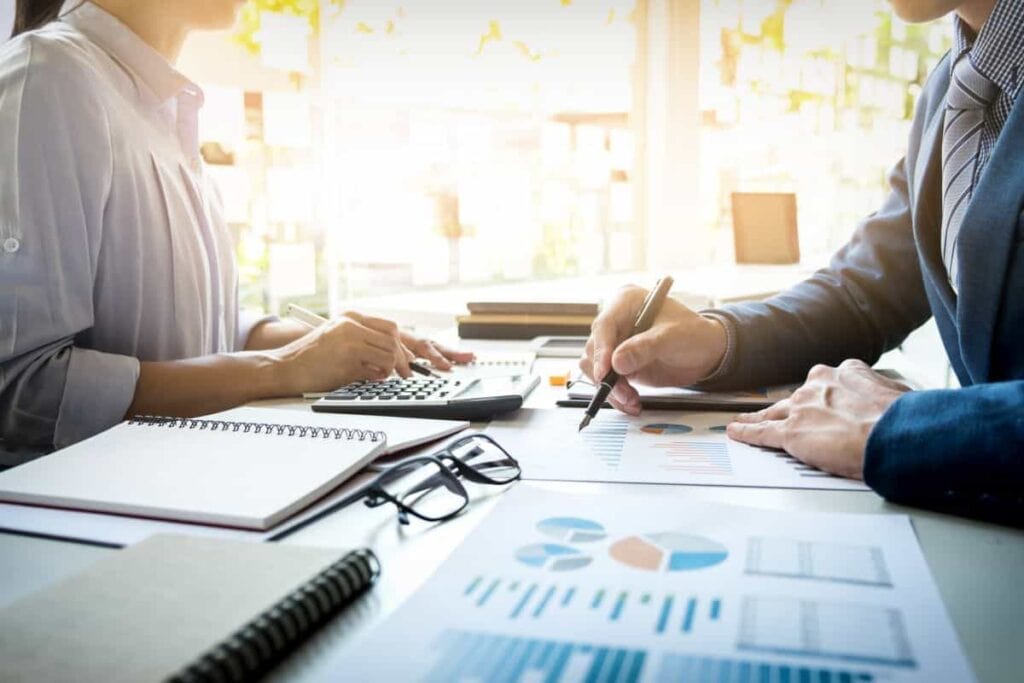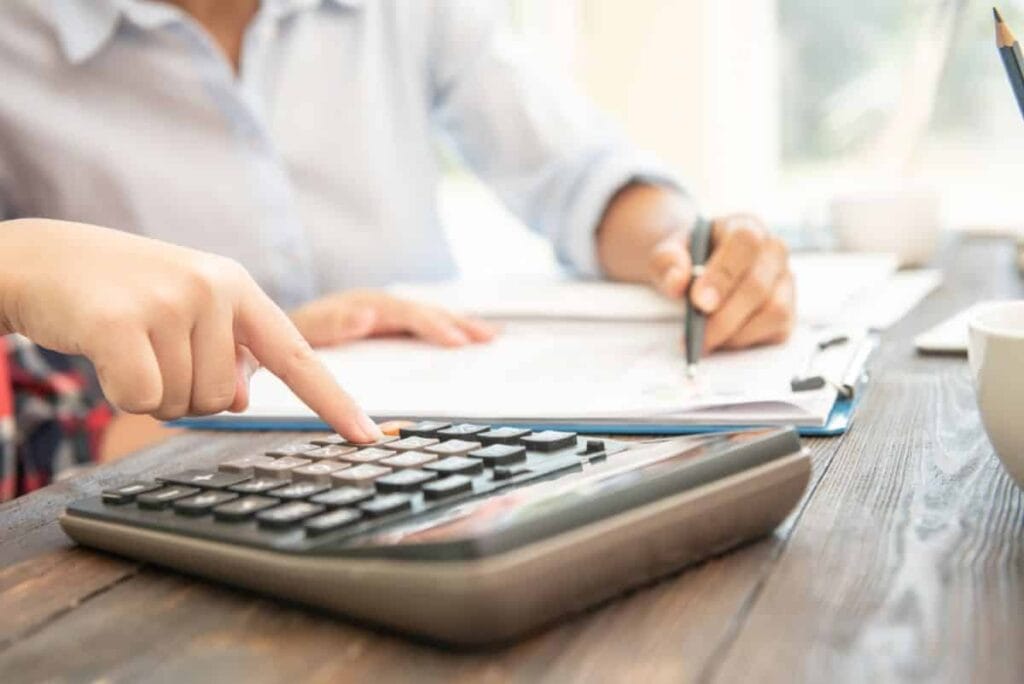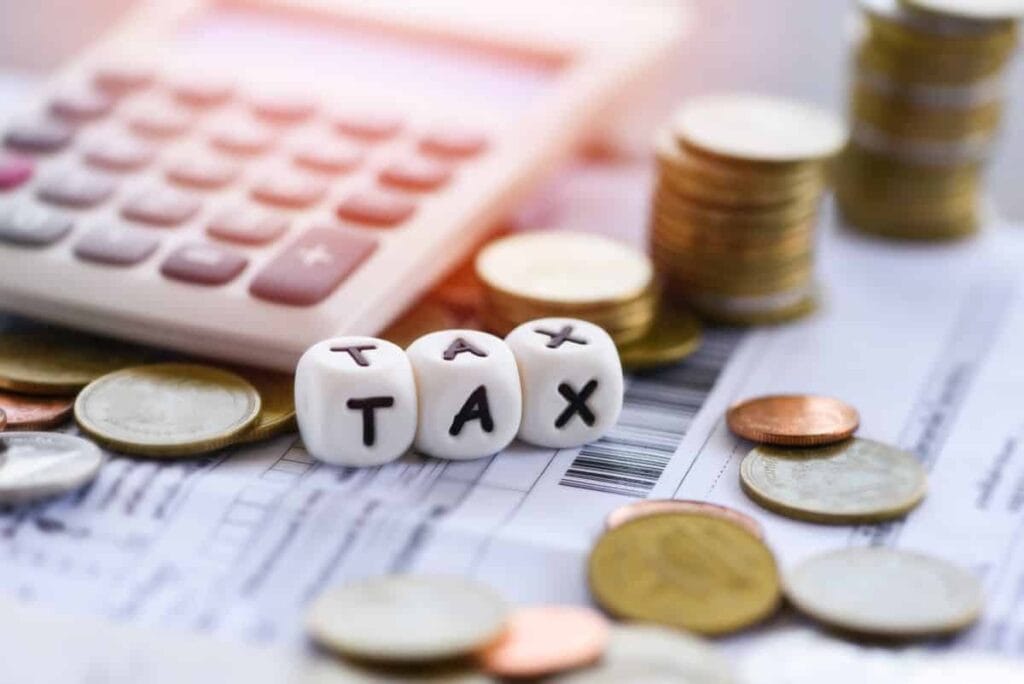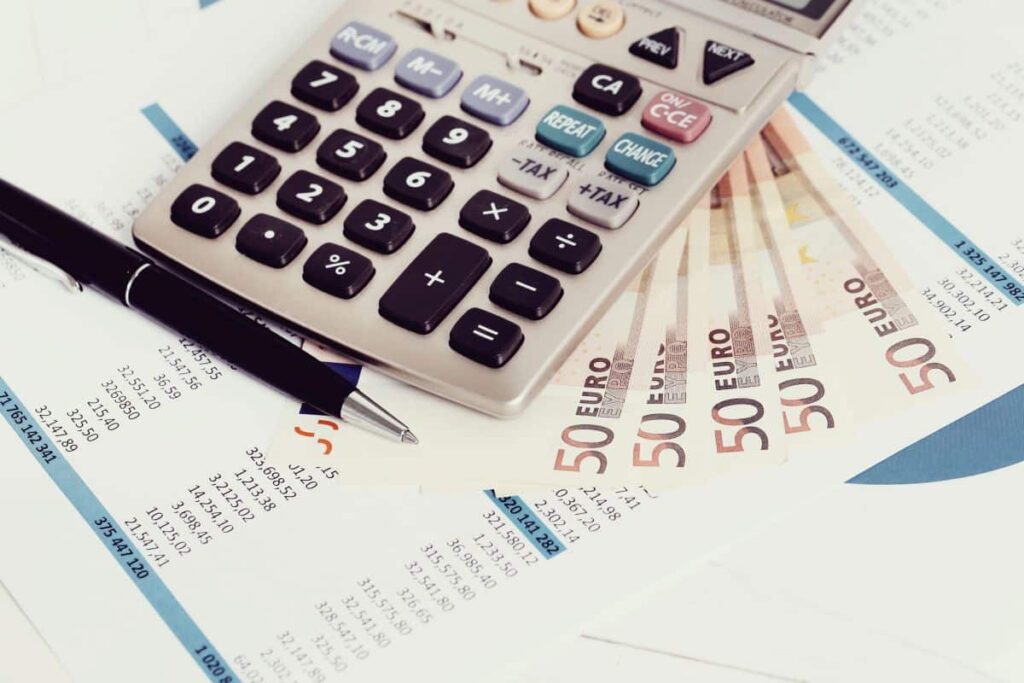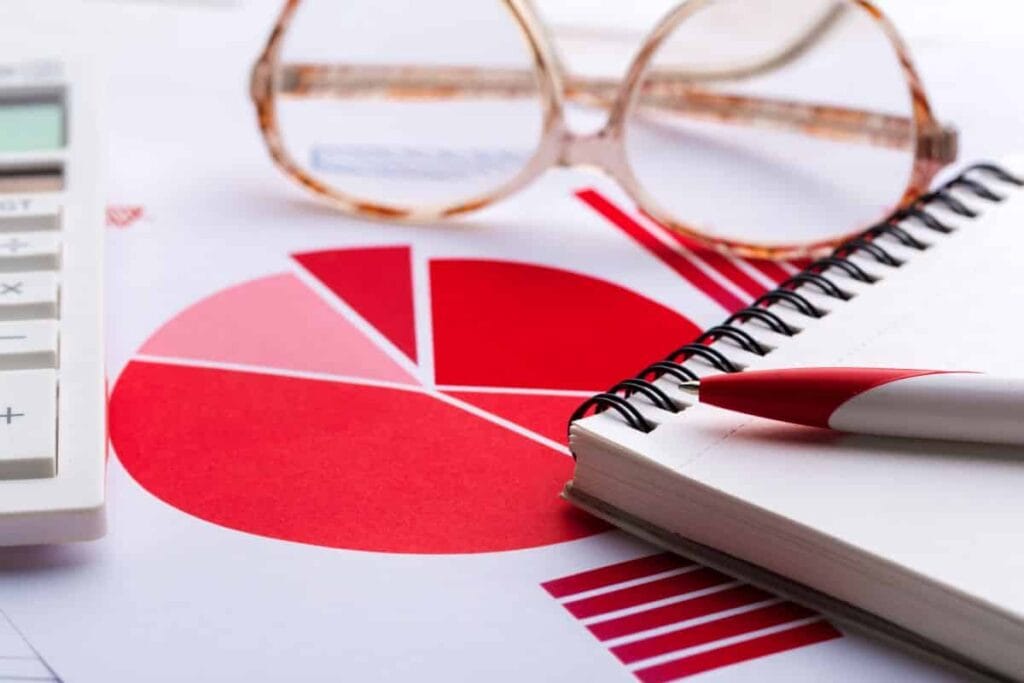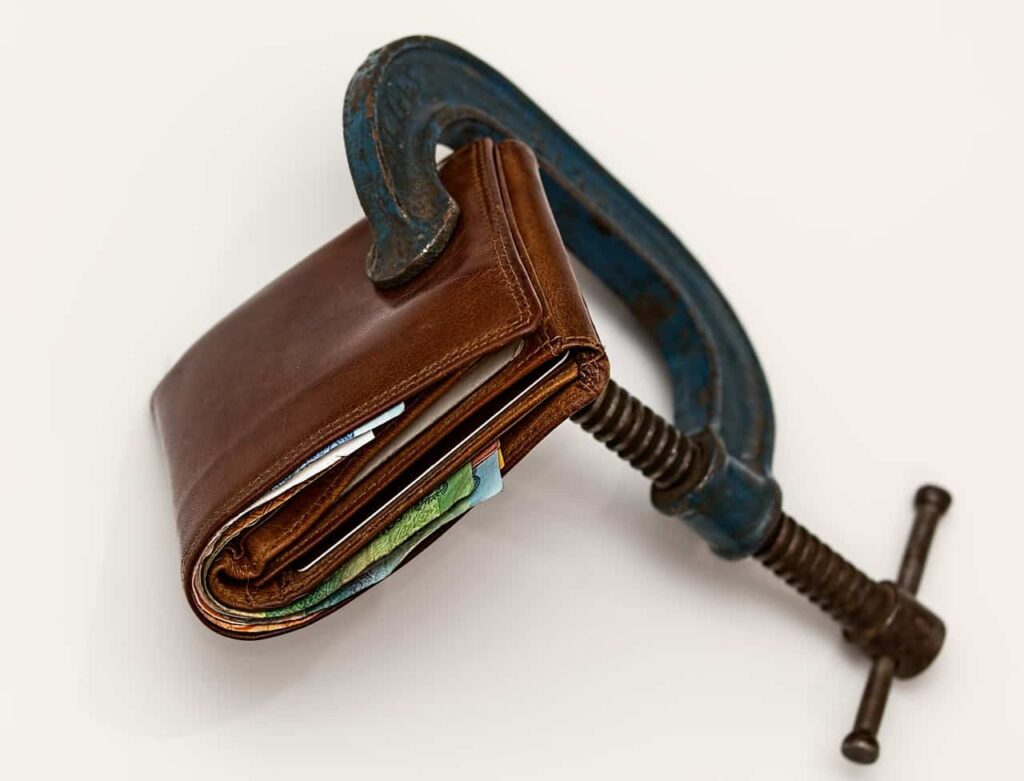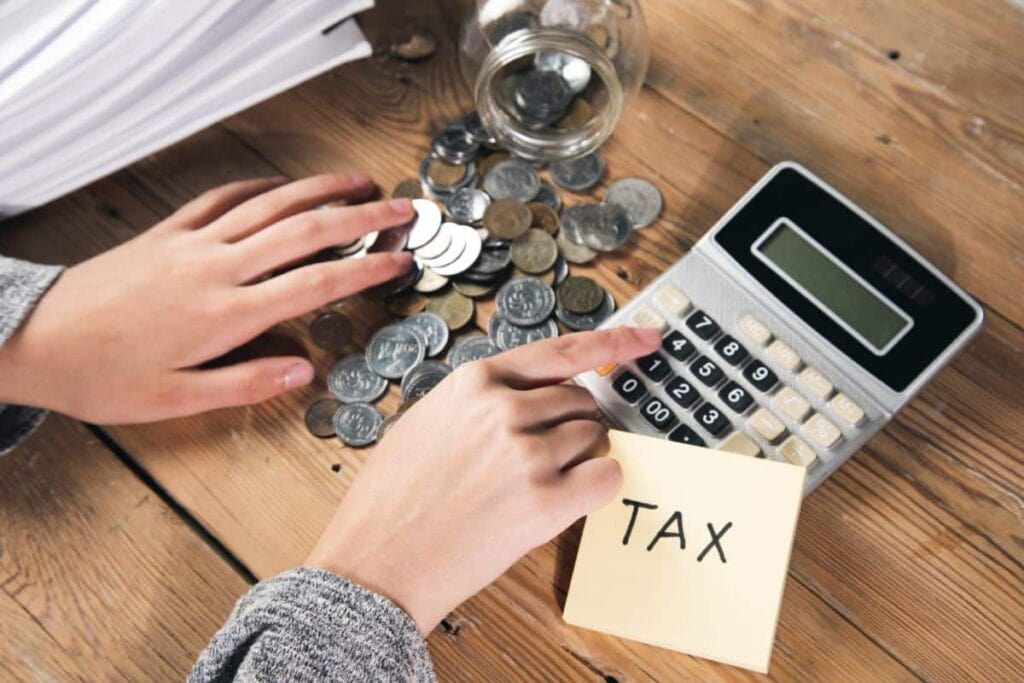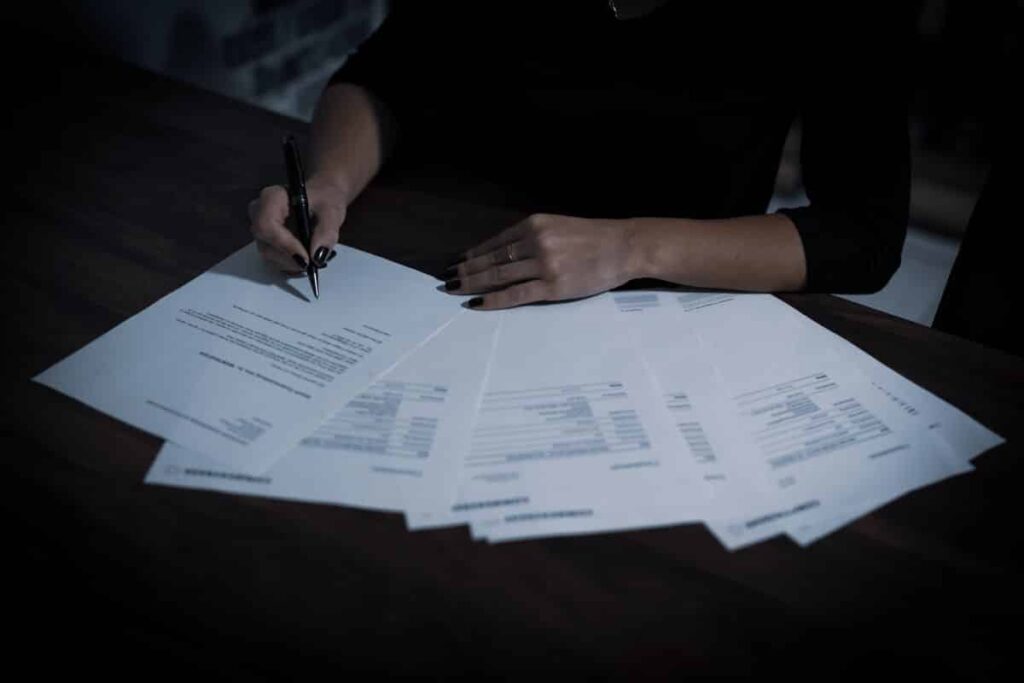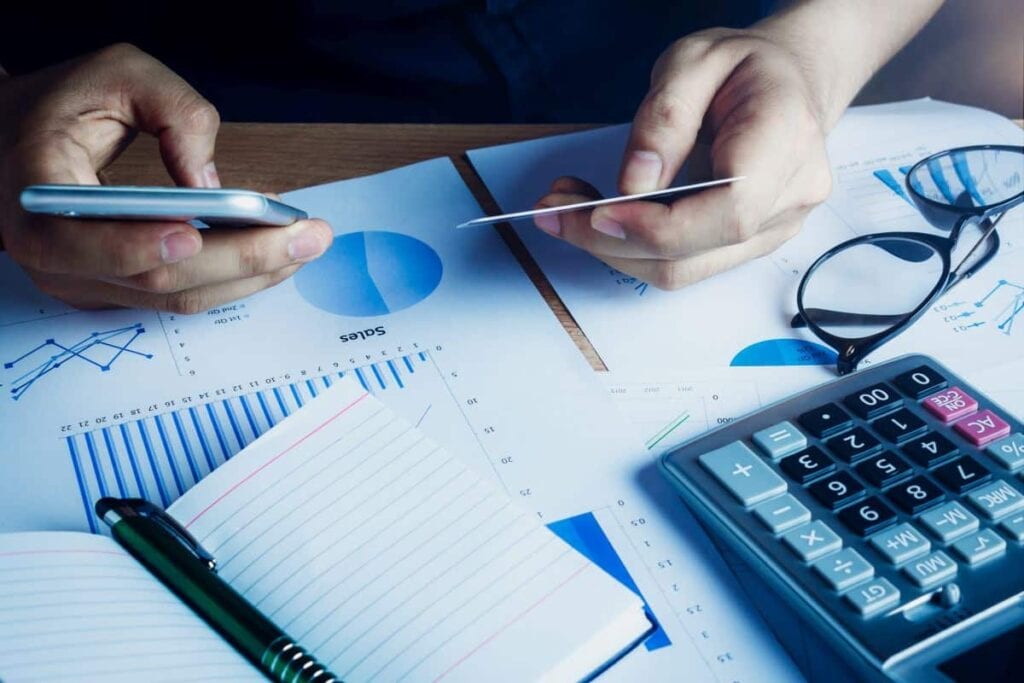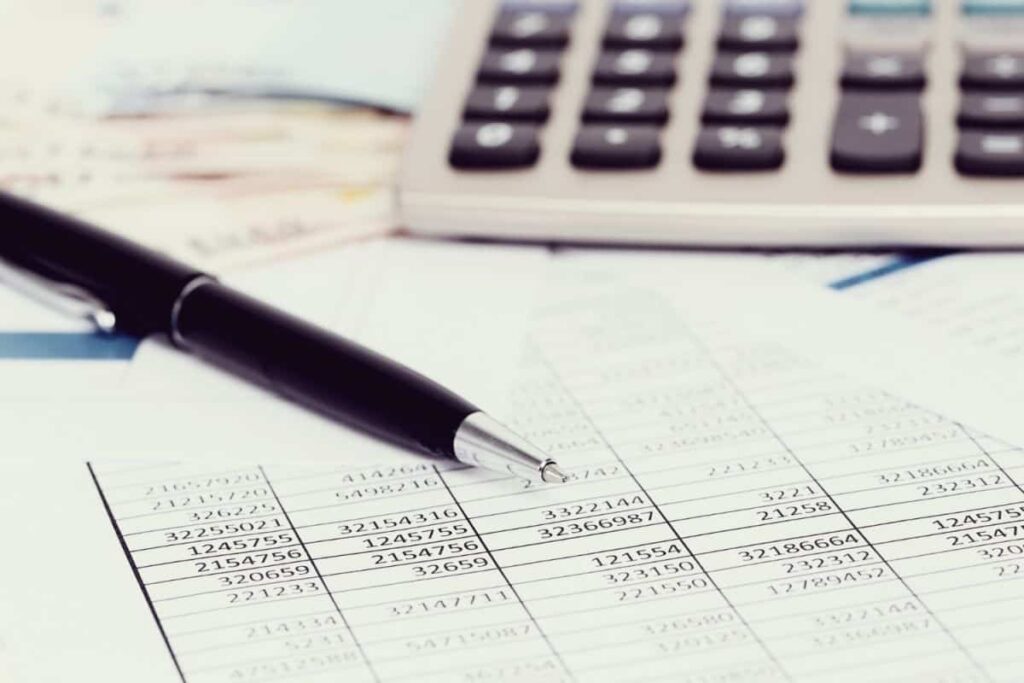Tax Time Tips For Individuals
The time of year when taxes need to be filed can be stressful for a lot of individuals, but it doesn’t have to be. There are a few things that you, as an individual living in Australia, may do to make the process simpler and more straightforward. In this piece, we will offer some advice on how to file your taxes and what to anticipate from the process. In addition to this, we will discuss some of the more typical deductions and tax credits that are offered in Australia.
Many people in Australia will start to think about their tax returns as the conclusion of the current financial year draws closer. There are a few things you can do to make the process simpler, despite the fact that it might be intimidating at times. In this blog article, we will present some advice to individuals in Australia on how they can better prepare themselves for the next tax season.
In addition to this, we will talk about some typical deductions and tax credits that are accessible to taxpayers in Australia. Therefore, if you want to get your financial house in order before the 30th of June, continue reading for some useful ideas!
It is vital to understand your obligations and take the appropriate procedures in order to guarantee that you get the most out of your return during tax season, despite the fact that this time of year can be difficult and overwhelming for many people.
This year, you should make it a priority to get a head start on the competition by getting acquainted with the Australian tax system and gaining an understanding of the deductions and credits for which you might be eligible. With a little bit of organization and planning, filing your taxes can be a piece of cake! The following are some suggestions that will assist you in getting started.
It’s possible that separating your income could help you pay less in taxes altogether. You are able to accomplish this by redistributing the money that would normally go to your high-earning spouse or partner to yourself.
This can be accomplished by depositing money into an account that is held in the beneficiary’s name or by using the beneficiary’s account to pay for expenses such as tuition and medical insurance. If you own investment properties, there are a few things you can do to maximize the amount of money you save on taxes.
It’s crucial to make sure that your taxes are filed accurately, despite the fact that filing them might be a challenging chore. If you are an individual taxpayer in Australia, you may find the following suggestions helpful in making the procedure somewhat less complicated. To begin, compile all of the documents and receipts that are pertinent to your situation.
You are required to disclose all income, deductions, and expenses that you had during the course of the year, as well as any money that you made. After that, file your return by taking advantage of one of the various online tax filing services that are currently available.
If you want to avoid having to pay expensive fines, it is imperative that you carefully examine the filing dates as well as any applicable penalties for late submissions. And finally, after you have submitted your tax return, you should revisit this page to check for any updates regarding the status of the processing of your refund.
The approaching tax season is a time that almost everyone in Australia dreads. The process of compiling all of your information and filling out the papers might be a nuisance. But it’s crucial to file your taxes on time, so you don’t suffer penalties. Why not give some of these suggestions a shot this year to make doing your taxes a bit less stressful? They will assist you in doing your taxes in a timely manner and with no anxiety on your part.
If you are an individual in Australia who is preparing your tax return, the following advice should help make the process a little bit easier for you. To begin, assemble all of the pertinent documents and make sure they are prepared to be used.
This contains items like your income statement from your work, receipts for any expenses you’ve incurred, and details of any investments or assets you own as well as receipts for those investments and assets. After you have gathered everything together, the first thing you should do is fill out your personal information, which includes your name, address, and date of birth.
Next, complete the section on income, which should include things like wages and salary, benefits from the government, dividends, and so on. After that, move on to deductions such as expenses for working from home or gifts to charitable organizations.
This post will provide an introduction to the tax system in Australia as well as some ideas to assist make submitting your return a little bit easier. Read on for some useful information on everything from deductions to offsetting capital gains, regardless of whether this is your first time filing taxes or whether you’re just looking for a refresher.
Let’s get started!
Last-Minute Advice to Assist You in Getting Ready for Tax Season
1. Compile all of the necessary paperwork in one place
The less stressful the process is going to be for you, and the more probable it is that you will be able to maximize your deductions, the more organized you are.
You won’t be able to make the most of your spending if you don’t keep proper records and keep all of your receipts. Make sure that you gather all of your documentation in one location so that you can prevent unnecessary back and forth with your accountant.
Even though each person’s circumstance is different, as a general rule, the following documents should be obtained before you begin:
- a copy of the tax return from the previous year;
- Information pertaining to private health insurance;
- spouse details (if relevant);
- information about the children, including their dates of birth;
- a complete listing of all income, including income statements, income from rentals, interest, and dividends, as well as any money received from abroad;
- make a list of all of your expenses, including those associated with your job, any gifts you made, any money spent on furthering your education, and any money spent on handling your taxes.
- documents relating to the purchase and sale of any shares, businesses, or properties;
You or your accountant may be able to get some of this information from the ATO. Examples of this type of information include income statements, details regarding payments made by Centrelink, and information about private health insurance.
Aside from refunds, the ATO is tightening down on questionable deductions, which means that if you intend to claim it, you need to be able to verify that you are entitled to it.
2. Compile a list of all costs associated with your work
Whether you work as a chef, a carpenter, or a copywriter, every job has a list of tax deductions that are unique to that profession. There is a good chance that you can get reimbursement for some of the costs associated with your place of employment. These might include things like car expenditures, uniform costs, mobile phone bills, and even union dues.
Think about any items you’ve bought that are related to your employment or that help you perform your duties more effectively. It could be equipment that you use on the job, or it could be a membership to a newspaper that is specific to your sector. If the item is closely related to your job but your employer did not reimburse you for it, you may be able to write it off as a business expense.
3. Determine the method via which you will file your tax return.
When you have finished collecting all of your information, the next step is to think about how you will submit your tax return. If you want to submit your tax return electronically, you can do so on your own with the help of our Online Tax Express Return software.
We will provide you with tax guidance and suggestions at various points throughout the preparation process to ensure that you collect the most money possible from your refund. In addition, because it is accessible around the clock, you may submit your tax return electronically whenever and wherever it is most convenient for you, safe in the knowledge that it will be reviewed by a qualified tax professional from H&R Block.
You might consider using our Online Tax Adviser service if your tax return is more complicated than usual or if you require additional advice from a tax professional. Comparable in speed, simplicity, and adaptability to our Online Tax Express service, with the added benefit of having our tax professionals handle all of the laborious work on your behalf.
With Online Tax Adviser, all you need to do to get your returns prepared is upload your personal information and tax documents, and we will do the rest, including maximizing your refund and submitting everything through our user-friendly and protected online portal.
4. Seek the assistance of qualified people.
According to the statistics, 74% of people in Australia seek the assistance of a tax agent while preparing their tax returns. It is always in your best interest to seek the guidance of a professional, as even information that appears to be unimportant to you could have a direct bearing on the tax return you file.
Even while you might believe that preparing your own return will save you money, there’s a chance that you won’t be able to take advantage of certain tax deductions. Expert advice is both convenient and inexpensive thanks to a variety of pricing plans and package options designed to accommodate a wide range of taxpayers and income levels.
Instructions on How to File Individual Tax Return
1. How to lodge your tax return
1. Instructions on how to file your tax return.
- You will need certain information in order to prepare your tax return, and part of that information is as follows:
- Your Tax File Number, also known as a TFN;
- Your Income Statement, which can be retrieved using the online services provided by your ATO through myGov, or a payment summary that was sent to you by your employer. You can obtain additional information on access your payment summary or income statement;
- A rundown of the interest that has accrued across all of your bank accounts (you can view this information in NetBank);
- Details regarding your investment income, including information about managed funds, managed shares, and dividends;
- Your statement from your private health insurance company;
- Specifics regarding the amounts made toward child support;
- receipts for money donated to charitable organizations;
- receipts for any costs incurred in connection with labour;
- Your bank sort code (BSB) and account number, whether you are eligible for a tax refund.
2. Here are some tips:
The majority of financial institutions, insurance companies, and government agencies like Medicare and Centrelink make their paperwork available for online download. Check the website or app of your service provider for further information.
Through NetBank, you will have the ability to quickly get a summary of the interest that you have accrued on your CommBank accounts. Simply log in, click the “View accounts” button, then the “More” button, and finally the “Interest & tax summary” button.
If you are a customer of CommSec, you can get a summary of the previous fiscal year by signing into CommSec, hitting the “Portfolio” tab, and then click the “Statements” tab.
3. Is it possible for me to file my tax return?

You have the option of submitting your tax return directly to the ATO, or you can seek the assistance of a registered tax agent in preparing your return.
Employing the services of a tax agent to assist you with your tax return is something you should consider doing if you are unsure about the Australian tax laws, have a complicated financial situation, or find the amount of paperwork to be daunting.
They will charge you a fee; but, if you itemize your deductions on your tax return for the following year, you can deduct that fee. Most significantly, spending some money to guarantee that your tax return is precise and comprehensive can be money well spent.
In most cases, filing your tax return electronically through the ATO’s myTax portal is the quickest way to do so; but, in order to do so, you will first need to create a myGov account. In addition, the ‘Pre-fill’ tool that is included in the ATO’s myTax software can assist you in ensuring that you do not omit any income when filing your taxes.
According to the website of the Australian Taxation Office (ATO), electronic returns are typically handled within two weeks, although the manual processing of paper returns might take up to ten weeks.
You might qualify for the Tax Help program offered by the ATO if your income is low enough and you meet certain additional requirements. Under this program, community members who have received training and accreditation can assist you in filing your tax return electronically.
4. What should I expect when I have submitted my tax return?
After the Australian Taxation Office (ATO) has finished processing your tax return, you will get a Notice of Assessment from them (NoA). This will tell you whether the ATO owes you money or whether you are eligible for a refund from them.
It is of the utmost significance that you keep your Notice of Assessment as well as the information that you utilized to prepare your tax return. It is possible that you will require this information in the future, such as if you are asked about your tax return by the ATO, if you apply for a loan, or if you complete your tax return online in the future.
5. If I made a mistake on my tax return, how can I correct it?
Because you are responsible for all the information that is included in your tax return, you should always perform a thorough review of everything before submitting your tax return. This is true regardless of the method that you choose to use to submit your tax return.
After you have submitted your return, if you discover that it contains an error or that a certain amount was left off, you will be required to submit an “amendment” to your tax return. You can find advice on how to modify your tax return on the ATO website, which you may check out. It’s possible that your bookkeeper, tax agent, or financial counsellor can assist you with the procedure as well.
Possible tax deductions that might be claimed while filing your taxes
Because it will soon be time for you to file your tax return, you should start thinking about any expenses you had during the previous fiscal year that was tied to your job or generated money for you.
It’s possible that you can minimize the amount of income that’s subject to taxation by writing off certain expenses as tax deductions.
Consider the following, as a general rule, in order to determine which costs you may be eligible to deduct from your taxes:
- Was the expenditure immediately relevant to the performance of your work or another activity that generated income?
- Have you already spent the money but your employer will not compensate you for it?
- Do you have a formal record of the expense, such as a receipt or a bank statement, to prove that you made the purchase?
You need to establish the portion of the spending that is relevant to your business or income-generating activity if the expense was for both work and personal use (for example, using the internet at home for both work and personal usage).
1. Costs incurred while working from home
Due to the fact that many of us are working from home because of the coronavirus outbreak, there are a number of expenses associated with home offices that you might be entitled to deduct from your taxes.
These are the following:
- Phone and Internet expenses
- Computer consumables (e.g. printer paper and ink) and stationery
- Home office equipment (e.g. computers, phones, printers, furniture and furnishings) – you may be able to claim either:
– The full cost of the items, if it’s less than $300; or
– The decline in value (also known as depreciation) for items over $300.
Bear in mind that the majority of people are unable to declare that they:
- Home expenses, like mortgage interest, rent and rates
- Costs of general household items, like coffee, tea and milk
Before you claim any money on your tax return for costs associated with working from home, you should give careful consideration to the following requirements.
For instance, you need to think about whether or not you are eligible to claim the temporary “shortcut method” that has been approved by the ATO (which is 80 cents per hour for all additional running expenses) for the period of time beginning on March 1, 2020, and ending on June 30, 2020, for the 2019-20 income year and beginning on July 1, 2020, and ending on June 30, 2021, for the 2020-21 income year.
It’s possible that other ways of calculation are acceptable as well, and perhaps even more so given your circumstances. However, before claiming a deduction, you should carefully examine which approach is most suitable for your circumstances as well as the requirements that must be satisfied. On the website of the ATO, you can read more about the costs associated with working from home.
Also, keep in mind that the specifics of your personal situation will determine whether or not you are eligible to claim a tax deduction for various expenses. On the website of the ATO, you will discover further information about the deductions you are eligible to claim.
2. Expenses for the vehicle and travel
In most cases, you won’t be able to receive reimbursement for the costs associated with going to and from your usual place of employment; but, you might be able to obtain reimbursement for some costs associated with travel and transportation for work-related purposes.
These are the following:
- In the event that your job necessitates you to visit a number of different businesses or sites;
- Expenses related to your automobile in cases where you are required to use it for your job;
- When you are compelled to travel for work, accommodation costs will be incurred.
On the website of the ATO, you will discover information regarding how much you can claim for travel and automobile expenses.
3. Garments, washed and pressed clothing, and dry cleaning
Imagine that you went out and purchased work uniforms, protective gear, or occupation-specific attire so that you could perform your job more safely. If this is the case, you may be eligible to deduct these charges, in addition to any cleaning fees associated with them, as work-related expenses.
On the other hand, it is highly doubtful that you will be able to recoup any of the expenses associated with wearing normal attire or non-mandatory work uniforms.
In order to deduct these costs from your taxes, you need to have documented evidence of these charges, such as entries in a diary or receipts from a store.
On the website of the ATO, you will discover further information regarding expenses that you can claim for clothing, laundry, and dry cleaning.
4. A formal education
There is a possibility that you could be eligible for a tax deduction if the subject matter of your studies as relevant to your job and if you enrolled in a qualifying course.
On the ATO website, you may find out more information about the course expenses that you can claim.
5. Deductions relevant to specific industries
You can deduct from your taxable income any work-related costs that are directly connected to the trade or profession that you are employed in.
On the website of the ATO, there is a list of occupations and sectors that you can look through to see which industry-related tax deductions you are eligible to claim.
6. Additional costs associated with the work
Depending on the nature of your employment and your personal circumstances, there are a variety of additional work-related expenses that you might be entitled to deduct from your taxable income. Expenses to consider include:
- Eye protection such as safety goggles and sunglasses;
- Books, magazines, and subscriptions to online sources of digital information;
- Dues are paid to groups and unions, fees charged by bargaining agents, and fees paid for union membership.
- Meals are served at odd hours;
7. Donations and gifts of money

You may be eligible for a tax deduction if you have made a contribution to a group, such as your preferred charitable organization, in the form of a gift or donation. Having said that, there are particular guidelines that must be followed.
In general, you are allowed to deduct any donation that you made that was greater than $2 if it was given to a “deductible gift recipient.” However, depending on the nature of the gift being given, there are a few distinct guidelines to follow.
On the website of the ATO, you will discover information regarding gifts and donations that qualify for tax deductions.
8. Profits from investments
If you have received any of the following, you may be eligible to claim certain tax deductions related to investment income:
- Payments of interest based on your savings;
- Your investments in shares should generate dividends;
- Rental income from a property held for investment purposes;
- One more form of earnings from investments.
If you have received any of these types of income, you may be eligible to file a claim for the expenses that are associated with this type of income. Some examples of these expenses include the interest that is charged on money that was borrowed to purchase stocks or rental properties.
You may also be eligible to receive a refund for fees associated with receiving investment advice.
FAQs
1. I have just received a letter from the tax office saying that I did not declare some interest from my bank account. What should I do?
If you have reason to feel that this is not accurate, you should get in touch with your financial institution so that they can verify the specifics of your income for your accounts. If this information is inaccurate, the bank is required to provide written notification to the ATO.
You have a total of 28 days to make the necessary changes to this information. If, on the other hand, you failed to include the taxable income, you do not need to get in touch with the ATO. Instead, they will seek an amendment to your return and issue you a new assessment that includes a demand for payment of the excess tax, a charge for general interest, and in some instances, penalties.
2. A friend of mine shared with me an investment opportunity that piqued his attention and suggested that I put some of my own money into it. He claims that there is the potential for us to make a lot of money, but I don’t believe him since it seems too good to be true.
It is quite smart of you to exercise caution. There are some scams out there that promise significant tax deductions that they claim will be approved by the ATO, but not all schemes are legitimate. Therefore, before putting any money into any investment plans, it is a good idea to do some research on them.
If you invest in a high-risk tax scheme, you run the danger of losing all of your money and may also be required to pay back any tax refunds you received as a result of improperly claiming deductions, in addition to interest and possible penalties.
It is recommended that before to making any kind of financial investment in a tax scheme, independent guidance from a professional advisor as well as the tax office is sought out.
On the websites of the Australian Securities and Investment Commission and the Australian Competition and Consumer Commission SCAMwatch, you may find information and warnings on investment schemes and scams. Both of these websites can be located in Australia.
3. A trust distribution has provided my daughter, who is now 14 years old, with a total of $600. Is it necessary for her to submit a tax return?
She will, in fact, be required to file a tax return. Before the start of the 2012 tax year, a person under the age of 18 may earn up to $3,333 from investments before having to pay any kind of income tax.
On the other hand, from July 1, 2011, the government stopped allowing children under 18 to qualify for the low-income rebate for money that was not earned (such as interest, dividends, rent, royalties, trust distributions etc.). This means that a person under the age of 18 who has an unearned income of more than $416 is required to file a tax return.
The low-income tax offset may be possible to minimize the amount of personal exertion income tax that is owed, such as salaries and wages. However, the tax must still be paid on such income. Unearned money, on the other hand, will not qualify for the low-income rebate and will instead be subject to taxation at the rates that apply to minors.
4. Am I need to report any income I received from Centrelink (Newstart, Austudy) on my tax return?
Every dollar of revenue needs to be reported. The reason for this is that the tax office needs to figure out what tax rate should be applied to your other earnings for the year. There is a possibility that you are eligible for a credit that will cancel out any potential tax liability associated with your benefit.
You can get the necessary information by using the web services provided by Centrelink, the mobile apps provided by Express plus, or the self-service terminals located in the Department of Human Services Service Centres.
5. In around six months, I will be travelling to Europe, where I intend to maintain my employment. If I work outside of Australia and earn money, will I be subject to taxation in Australia on that money?
Unless you have worked overseas continuously for more than ninety days and are engaged on a particular project for the Australian government or are deployed overseas as a member of an Australian government agency, the income will be subject to taxation. In these circumstances, the income won’t be subject to taxation.
If your income from overseas is not exempt, you will be required to declare it on your Australian tax return. If you do so, you may be eligible for a foreign income tax offset to compensate for any taxes paid to a foreign jurisdiction in relation to that income.

